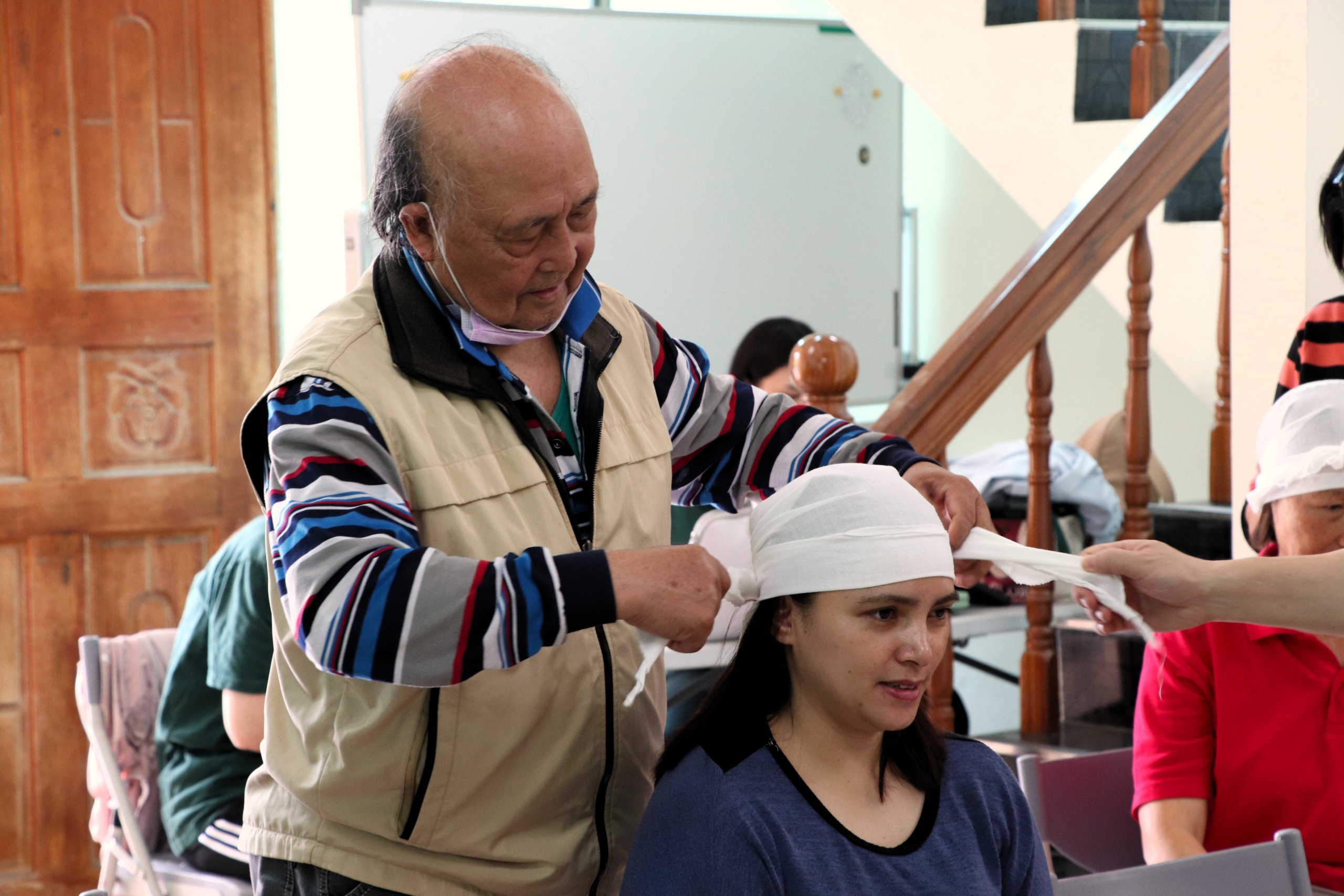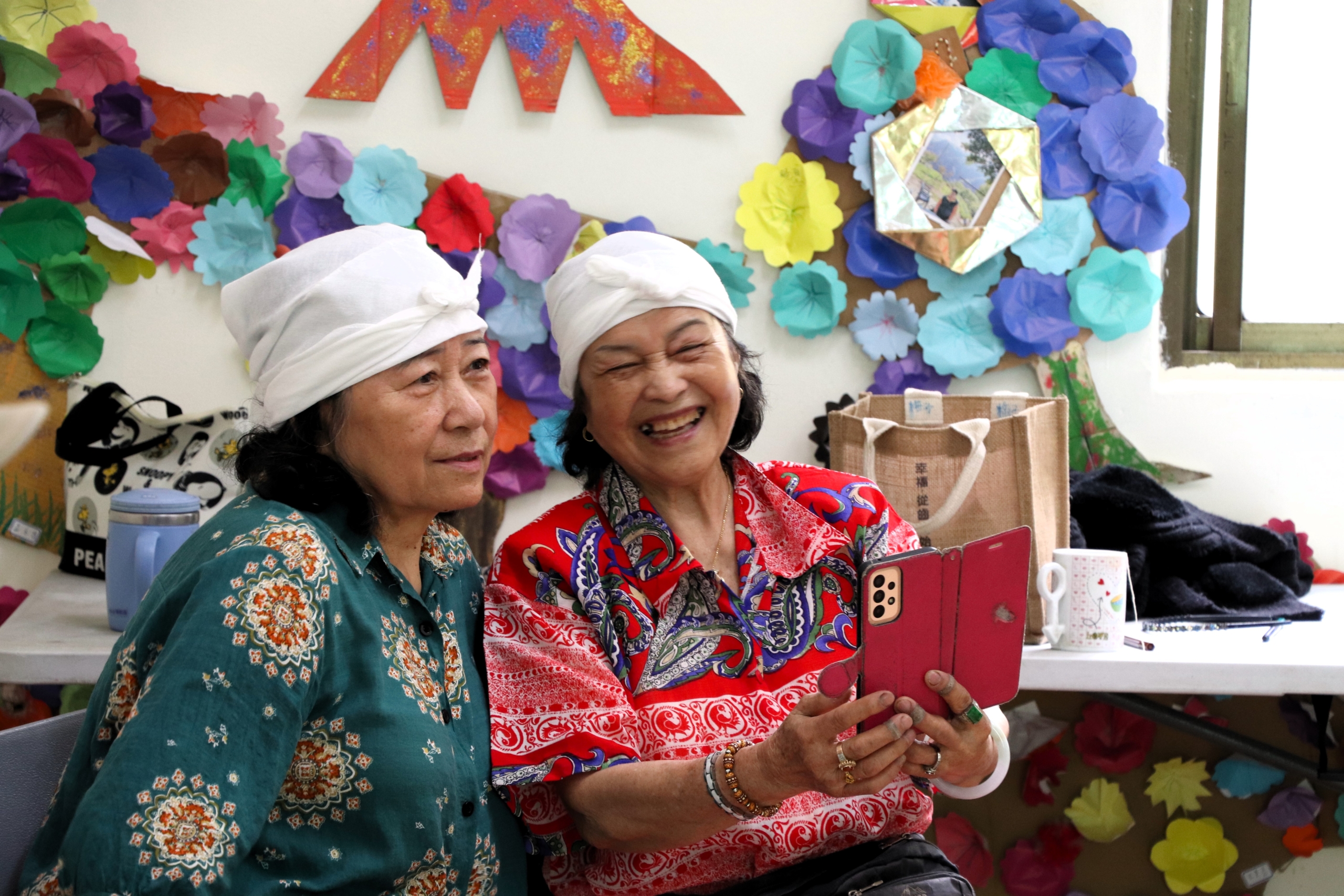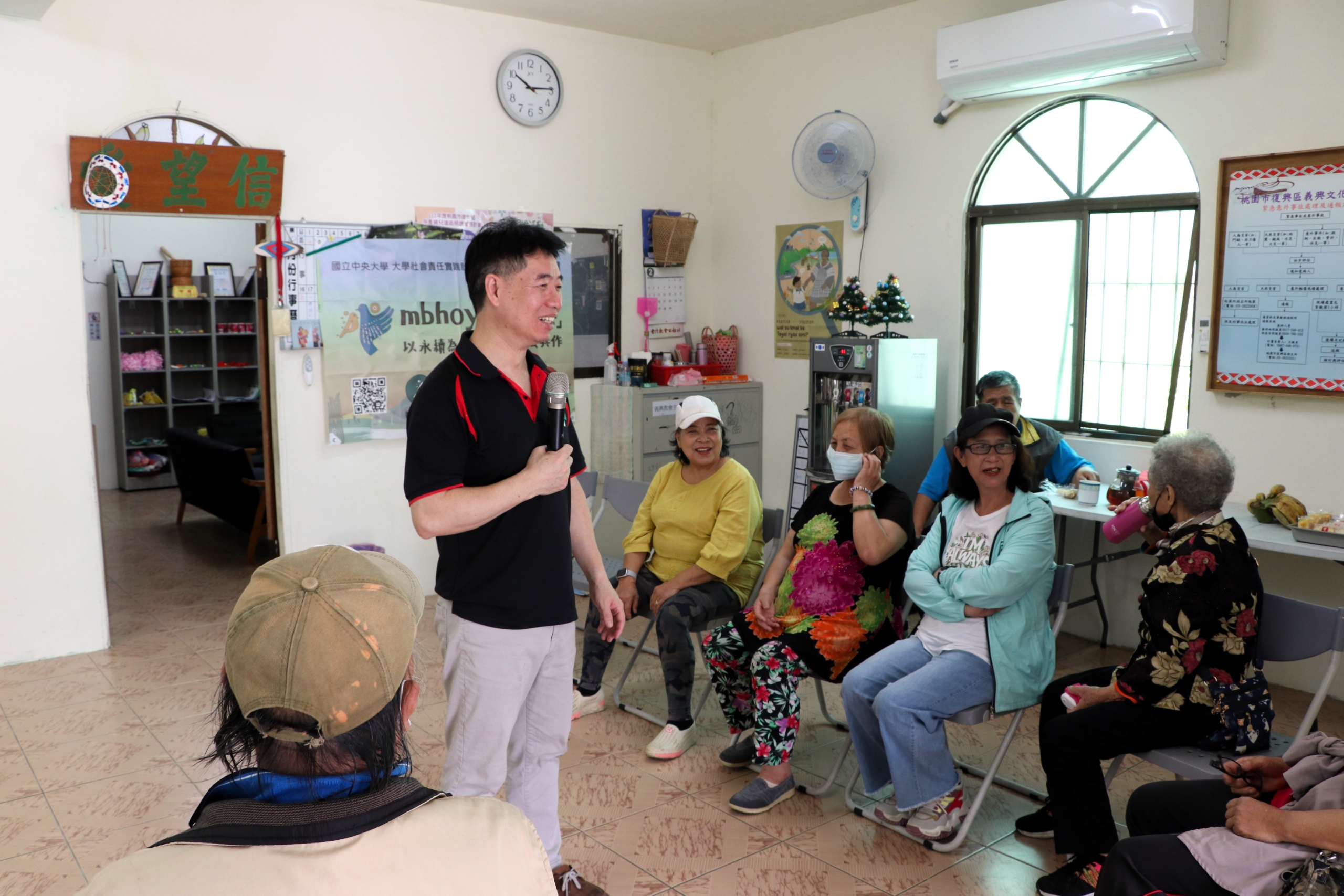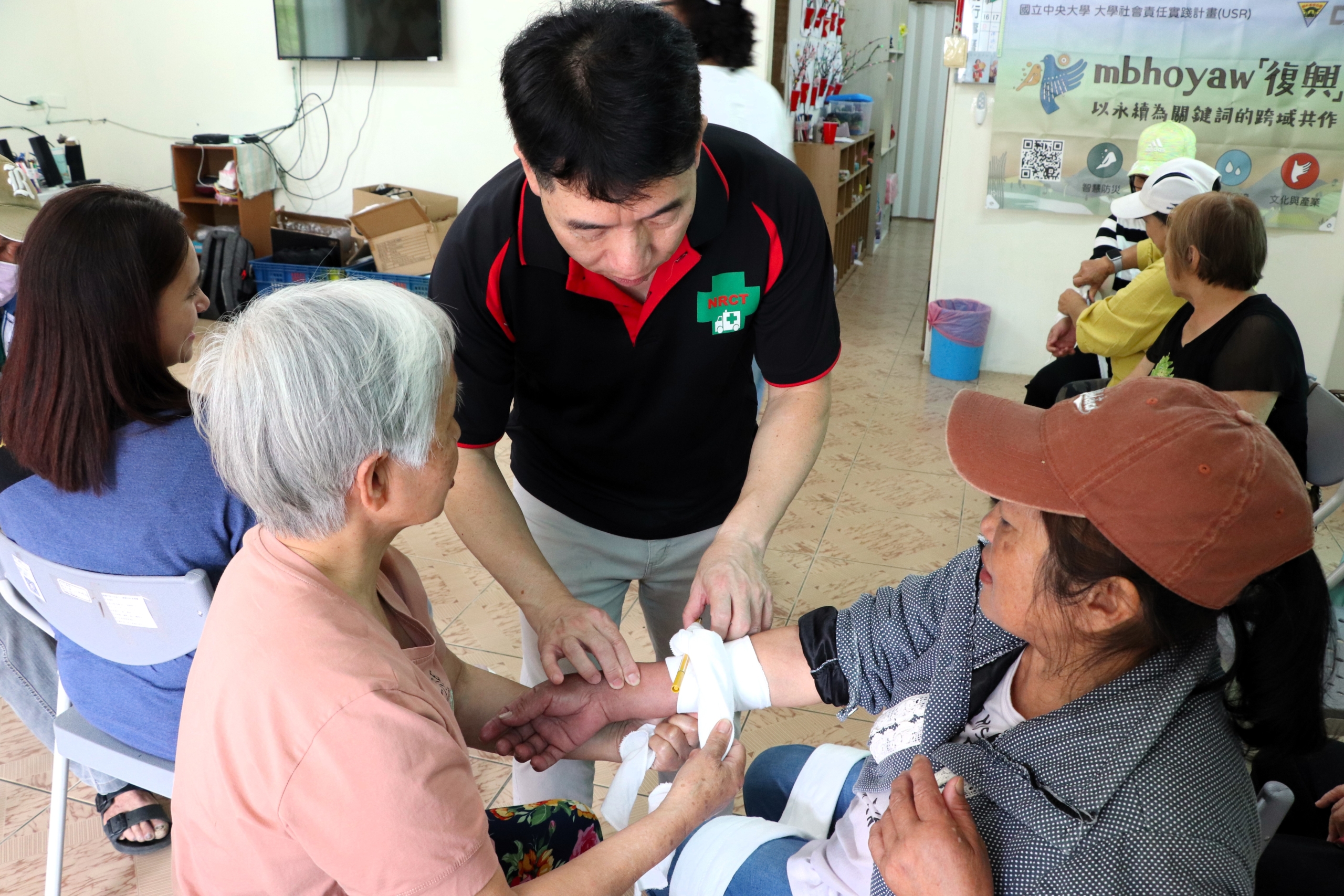We returned to Fuxing District to hold another Basic Trauma Life Support (BTLS) certification training course! Despite the challenges of earthquake threats and unstable weather, we were determined to proceed with the training in Fuxing. This session took place at the Yixing Tribal Cultural Health Station, a space that combines a church and an activity center for elders. Over 20 elders participated in the training, most of whom were women.
The training maintained the same high level of professionalism as before, with instructors from the Taiwan Emergency Skills Promotion Association leading the course in their usual humorous and engaging style. When teaching how to perform emergency bandaging for different types of wounds, the instructors made adjustments to accommodate older participants with limited mobility. Although there was less group interaction this time, the increased one-on-one teaching time allowed each participant to learn emergency skills more thoroughly.
Throughout the activity, I captured many moments of the elders smiling warmly. They eagerly used their phones to record the bandaging techniques, clearly enjoying the course and showing a strong desire to learn professional first aid skills. During the hands-on practice, they not only had fun but also experienced a sense of accomplishment.
The elders usually only attend morning activities, but they made a special effort to stay for the afternoon session of this training. Though some participants were visibly tired, a nearby resident kindly brought a pot of coffee grown and roasted locally in Fuxing District, energizing everyone and adding a lively touch to the event.
At the end of the training, one auntie enthusiastically shared, “When my grandson used to get a nosebleed, I always told him to tilt his head back, but after today’s class, I learned that when he told me his teacher taught him to lean forward, that was actually the correct way!” Her story surprised us all and served as a reminder of the importance of bringing this type of education to remote areas. First aid knowledge not only saves lives in critical moments but also provides a sense of security when facing accidents in everyday life. In this remote mountain area, elders often cannot access medical resources in time, so knowing first aid skills is especially important for them. We hope to continue bringing this knowledge to them, empowering them to face unexpected situations with greater confidence.
Text by Wang Qian-Yu
Editor by Li Ruo-Jia
Photos by Wang Qian-Yu






